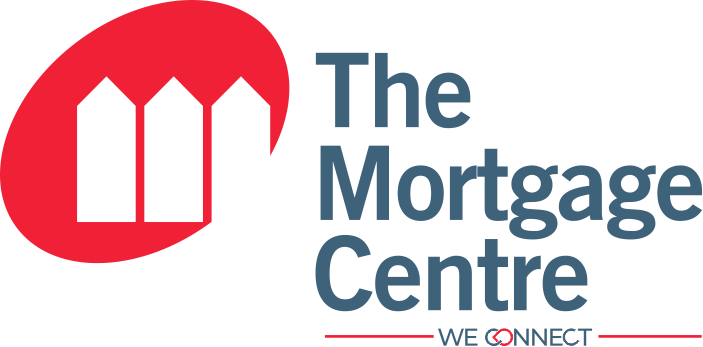The Great Mortgage Debate: Switching from Variable Rate to Fixed Rate
You’re here because, most likely, you are in a variable rate mortgage but you’re now wondering if you should lock in. Currently variable rates are generally higher than fixed right now, so theres no wonder your considering this. It’s tempting, however chasing the rate isn’t always the best course of action. Why did you choose variable when you did? Was it strictly for the rate? Or do you have plans to move soon? Or perhaps you wanted to the option to refinance in the next couple years to access some equity?
The Variable Rate Rollercoaster: Imagine riding a rollercoaster that fluctuates with the wind. That's a variable rate mortgage for you. When you sign up for a variable rate mortgage, your interest rate is linked to a benchmark, typically the prime rate. This means your monthly mortgage payments can change over time as the benchmark fluctuates. The initial attraction of a variable rate mortgage lies in the possibility of lower interest rates, which can save you money initially.
Ups and Downs: However, it's important to remember that with variable rates, you're exposed to the whims of the market. If interest rates rise, so will your monthly mortgage payments. This uncertainty can make budgeting a bit challenging, as you can never be sure what your payment will be next month or a year from now. On the flip side, if interest rates drop, you might experience lower payments, which can be a relief for your wallet.
Market Volatility and Risk: One of the primary reasons people consider switching from a variable rate to a fixed rate mortgage is to gain stability and peace of mind. In a volatile market, having a fixed rate mortgage means your interest rate will remain the same for the duration of the fixed term, usually ranging from 1 to 5 years. This predictability allows you to plan your finances more accurately and protects you from sudden interest rate hikes.
Sleep Soundly with a Fixed Rate: The allure of a fixed rate mortgage lies in the stability it offers. Regardless of how interest rates fluctuate, your monthly payments stay the same, which makes it easier to budget and plan for the long term. It provides a sense of security, shielding you from potential financial shocks that may arise from unpredictable market conditions.
Calculating the Costs: Of course, there are considerations to keep in mind when switching from a variable rate to a fixed rate mortgage. First, you'll need to evaluate the current interest rate environment. If fixed rates are higher than your current variable rate, you'll need to determine whether the stability is worth the potential increase in monthly payments. Additionally, there may be fees associated with refinancing your mortgage, such as appraisal and legal fees, so it's crucial to weigh these costs against the potential benefits.
Consulting the Experts: Deciding whether to switch from a variable rate to a fixed rate mortgage is a personal choice that depends on your financial situation and risk tolerance. It's advisable to consult with a mortgage professional who can help you assess your options and provide guidance tailored to your circumstances. They can provide valuable insights and help you make an informed decision based on your long-term financial goals.
I like to look at variable and fixed as riding out the waves. With a variable rate mortgage, you are riding out every wave in real time, with a fixed rate mortgage you are still riding that wave but it is in (usually) 5 year increments.
Questions you need to ask yourself before making any changes:
How comfortable am I with potential interest rate fluctuations? Variable rate mortgages are subject to changes in interest rates, which can affect your monthly mortgage payments. Are you financially prepared for potential increases?
What is my risk tolerance? Variable rate mortgages will fluctuate. Can you stomach the those increases and decreases (the decreases are the fun ones)
How long do I plan to stay in the property? Consider your long-term plans for the property. If you intend to stay for a short period, a variable rate mortgage might be more suitable as the potential rate increases might not impact you significantly. However, if you plan to stay for a longer term, you may want to consider the stability of a fixed rate mortgage.
Can I afford higher payments if interest rates rise? Evaluate your financial situation and determine if you have the capacity to handle higher mortgage payments in case interest rates increase. It's important to ensure that you can comfortably manage your mortgage payments even if rates go up.
If life happens, and you need to sell or refinance, are you ok with the fees associated with a fixed rate mortgage?
Have you explored the current and projected interest rate trends? Research and understand the current interest rate environment and economic forecasts. It can provide insights into potential rate movements and help you make an informed decision about choosing a mortgage.
Switching from a variable rate to a fixed rate mortgage is a significant decision that should be carefully considered. While a variable rate mortgage offers the possibility of lower initial payments, a fixed rate mortgage provides stability and peace of mind, protecting you from market fluctuations. Ultimately, your decision should be based on your financial goals and risk tolerance. So, take the time to evaluate your options, seek expert advice, and make the choice that aligns with your long-term financial well-being. Good luck on your mortgage journey!
If you would like to go over your options you can contact me here
Juliana Tardif
Mortgage Classroom
